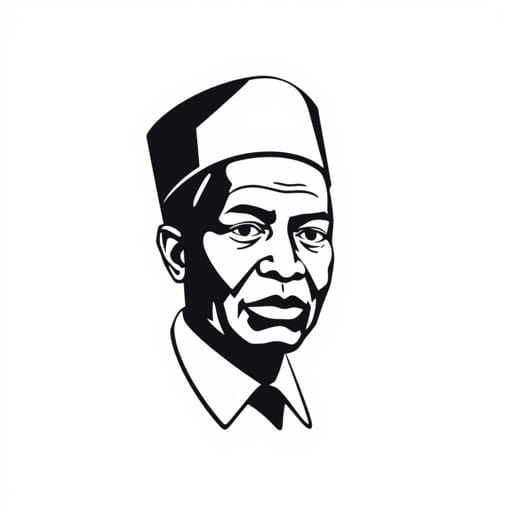Kenneth Kaunda, Zambia’s first president and a towering figure in Africa’s struggle for independence, passed away on June 17, 2021, at the age of 97. For clarity: as of today in 2025, Kenneth Kaunda is no longer alive. His death marked the end of an era for both Zambia and panAfrican leadership.
Early Life and Rise to Leadership
Childhood and Career Beginnings
Kenneth David Kaunda was born on April 28, 1924, in Lubwa, near Chinsali, in what was then Northern Rhodesia (now Zambia). The youngest of eight children, he was raised by a Church of Scotland missionary father. He worked odd jobs to fund his education and later became a teacher, following in his father’s footsteps. Kaunda entered politics in the late 1940s and co-founded the United National Independence Party (UNIP) to challenge British colonial rule.
Leading Zambia to Independence
Through Gandhi-style nonviolent protest, Kaunda became a leading nationalist voice. Despite imprisonment during the struggle, his momentum grew. In 1964, when Northern Rhodesia achieved independence from Britain, he became Zambia’s first president and remained in office until 1991, overseeing a newly sovereign nation of diverse ethnic groups.
Presidency and Political Influence
One-Party Rule and Nation-Building
During his 27-year rule, Kaunda introduced Zambian humanism, blending Christian ethics, African traditions, and socialist principles. In 1973, Zambia adopted a one-party state under UNIP. While this system stabilized the nation amid regional turmoil, critics accused him of authoritarianism and suppressing political opposition.
Support for African Liberation Movements
Kaunda played a central role in southern Africa’s fight against colonialism and apartheid. Zambia hosted liberation movements such as South Africa’s ANC and supported independence efforts in Zimbabwe, Namibia, Angola, and Mozambique. He co-founded the Frontline States alliance to coordinate efforts against white minority rule across the region.
Transition to Multiparty Democracy
Stepping Down Peacefully
Amid economic hardship and rising public pressure, Kaunda agreed to reintroduce multiparty elections in 1991. He ran and lost to Frederick Chiluba, making him one of the few African leaders of his generation to yield power through democratic processes.
Post-Presidency Challenges
After leaving office, Kaunda faced political marginalization. Laws were changed to prevent him from running again, and he was briefly detained in 1997 under charges of treason before being placed under house arrest. Despite these setbacks, he remained committed to public service and advocacy.
Later Life and Humanitarian Work
Fight Against HIV/AIDS
Kaunda’s later years were devoted to raising awareness about HIV/AIDS in Africa, especially after losing a son to the disease in the 1980s. He founded the Kenneth Kaunda Children of Africa Foundation and received a Leadership Award from UNAIDS for his efforts to break stigma and support prevention campaigns.
Longevity and Personal Habits
Despite recurring health issues in his final years most notably pneumonia Kaunda lived to 97. He attributed his longevity to a strict lacto-vegetarian lifestyle, avoiding meat, eggs, chicken, tea, and alcohol.
The Death of Kenneth Kaunda
Final Illness and Passing
On June 14, 2021, Kaunda was admitted to Maina Soko Military Hospital in Lusaka. He was being treated for pneumonia, which was part of a recurring illness. On June 17, 2021, he died peacefully at the hospital at about 2:30 pm local time, aged 97.
National Mourning and Funeral
The Zambian government declared 21 days of national mourning. Flags flew at half-mast, and entertainment venues closed. His body was taken to provincial towns for solemn ceremonies before a state funeral held at Lusaka Show Grounds on July 2, 2021. He was laid to rest on July 7 at the Embassy Park Presidential Burial Site in Lusaka alongside other presidents.
Why the Question, Is Kenneth Kaunda Still Alive?
- Kaunda lived well into his 90s with some public appearances in his later years, which may have led to speculation about his status.
- Despite declining health, he remained a symbol of resilience and continued moderate involvement in public life.
- Occasional unrelated rumors circulated online far after his death, creating confusion in informal discussions.
Therefore, to be clear: Kenneth Kaunda died on June 17, 2021. Any mention of him being alive today in 2025 is incorrect.
Legacy and Lasting Impact
African Icon and Statesman
Kaunda is remembered as one of Africa’s founding fathers. He led Zambia to independence, practiced peaceful leadership transitions, and supported liberation movements across the continent. His philosophy of Zambian humanism helped unify a diverse nation and inspired solidarity across southern Africa.
Enduring Influence on Service and Activism
Beyond politics, Kaunda’s commitment to fighting HIV/AIDS and his humanitarian work shaped conversations about health, dignity, and advocacy in Africa. His legacy is honored through public monuments, a national holiday in Zambia on April 28 (his birthday), and the naming of the Kenneth Kaunda International Airport in Lusaka.
Kenneth Kaunda’s death in June 2021 marked the passing of a major figure in modern African history. He was not alive at the time of your question in 2025. Yet even in death his name remains firmly etched in the annals of leadership, peacebuilding, and continental unity. His life offers a powerful example of ethical leadership, resilience, and service to others an endearing legacy that continues to inspire humanity across Zambia and beyond.
:
